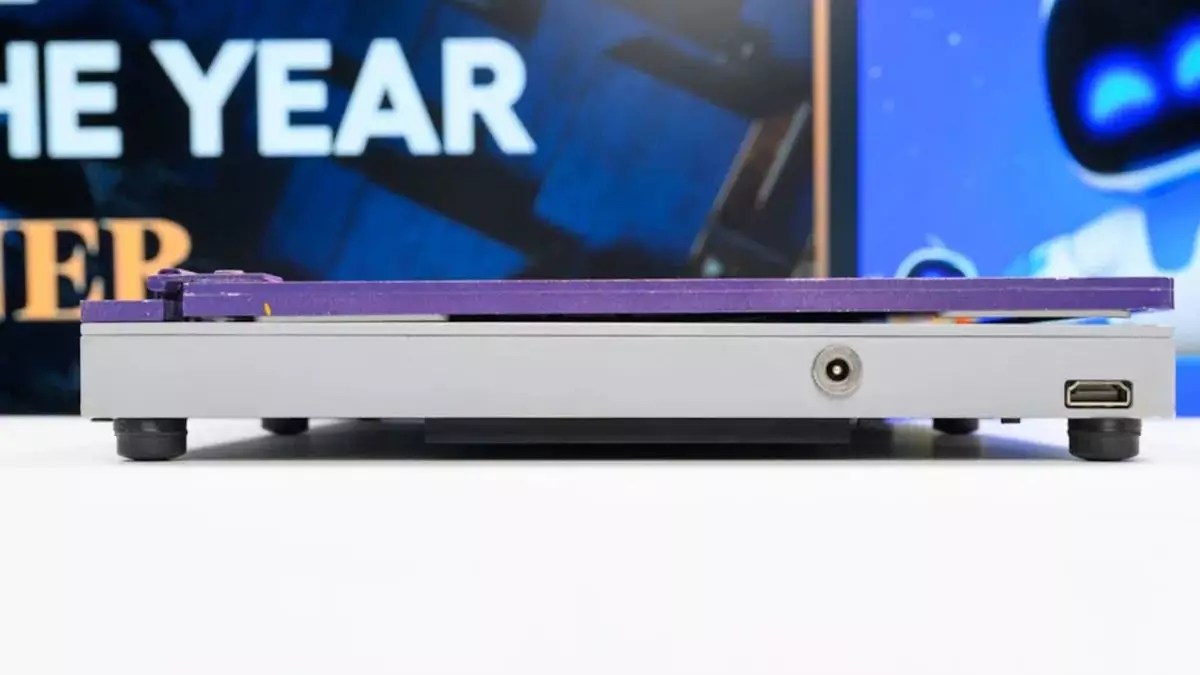In the ever-evolving landscape of gaming technology, the advent of portable gaming devices has garnered significant attention. The industry has undeniably ushered in a fascination with slim, lightweight designs that pack powerful performance. However, the BBook AI Original Edition finds itself seemingly at odds with this trend: a unique, albeit impractical, gaming laptop mod that leaves one questioning the very definition of portability in gaming devices.
Upon first glance, the BBook AI Original Edition appears to be a concoction of retro aesthetics blended with modern technology; a 3D printed gaming laptop that leans heavily into a quirky design philosophy. At 31 mm in thickness and boasting a 17-inch display, it is fair to say that calling it “portable” is akin to labeling a brick as lightweight. Weighing approximately 9.5 pounds (4.3 kg), the BBook AI not only surpasses other heavyweight contenders in the gaming laptop category—such as the Gigabyte Aorus 17X and MSI Titan 18 HX—but also challenges our comprehension of what a gaming laptop should be.
Such dimensions and heft raise an important question: what justifies this extravagant size and weight? Unlike typical gaming laptops that focus on a thinner profile, the BBook AI gives precedence to nostalgia over practicality. The hybrid aesthetic charm might appeal to retro enthusiasts, but in the practical realm of gaming experiences, this design could dissuade potential users.
When dissecting a gaming laptop’s specifications, one must consider the hardware that fuels the gaming experience. The BBook AI Original Edition houses the same formidable components found in the PlayStation 5, including a full-sized keyboard and a 4K IPS display. However, it’s noteworthy that the display operates at a limited 60 Hz refresh rate. While 4K resolution paints a captivating picture, many gamers today prioritize high refresh rates, making the BBook AI’s screen somewhat of a compromise at best.
A critical drawback resides in the fact that the BBook AI does not include a battery. This glaring omission inevitably questions the classification of the device as a “laptop.” In practical terms, this means connectivity to a power source is mandatory, effectively transforming what should be a portable gaming experience into something tethered. Furthermore, the device’s noise levels during gameplay can reach up to 71.3 decibels, rivaling the sound of a hairdryer at full power. This could turn any late-night gaming session into a cacophony that disrupts the tranquility of a quiet household, adding another layer of concern regarding its usability.
At a suggested price of around $2,748, the BBook AI Original Edition straddles the line between artisan craftsmanship and market viability. Amidst an array of gaming laptops that sport more balanced features, including integrated batteries and better portability, the BBook AI’s pricing raises eyebrows. While it is easy to justify a premium for unique or custom designs, one cannot ignore the stark reality—this device primarily serves as an elaborate showcase rather than a functional gaming laptop.
Despite its artistic allure, the question remains: Is it worth the investment? In comparison to contemporary gaming laptops that seamlessly integrate performance with portability, the BBook AI appears to be aiming for a niche market with its unconventional design choices and price point. The innovative aspect of creating such a device may find its audience among enthusiasts who appreciate exclusivity, but for the everyday gamer seeking practicality, it may ultimately fall short.
The BBook AI Original Edition embodies a fascinating paradox within the gaming world: the clash between innovation and functionality. While it showcases the creative potential in technology, it simultaneously stands as a stark reminder that the definition of a gaming laptop is evolving. As developers continue to push the envelope on gaming hardware and design, it will be essential for future iterations to find a balance between nostalgic design and the functional portability today’s users demand. For now, the BBook AI remains an intriguing discussion piece—a relic of what could be but may never fully realize its potential in the marketplace.


Leave a Reply